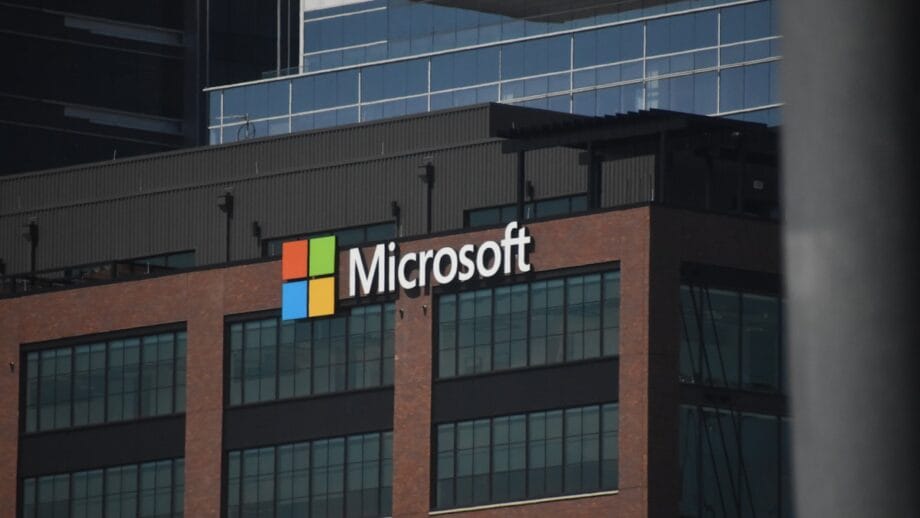Microsoft Revokes Technology Access from Israeli Military Following Surveillance Controversy
Microsoft has officially severed the Israeli military’s access to advanced technology, previously utilized to oversee a formidable surveillance apparatus that allegedly amassed millions of Palestinian civilian phone calls daily across Gaza and the West Bank, as reported by the Guardian.
Sources close to the matter disclosed that Microsoft notified Israeli officials late last week regarding violations of its terms of service by Unit 8200, the military’s premier intelligence agency, which was found to have stored an extensive cache of surveillance data within its Azure cloud platform.
This decisive action is a direct result of a recent investigation conducted by the Guardian, which unveiled the manner in which Azure was employed to harbor and process substantial quantities of Palestinian communications in a sweeping surveillance initiative.
In collaboration with Israeli-Palestinian outlet +972 Magazine and Local Call, the Guardian elucidated the collaborative efforts between Microsoft and Unit 8200 to transition substantial volumes of sensitive intelligence data to Azure.
This initiative originated following a 2021 meeting involving Microsoft CEO Satya Nadella and the then commander of Unit 8200, Yossi Sariel.
In light of the investigation, Microsoft commissioned an urgent external examination to scrutinize its association with Unit 8200. Initial findings have since prompted the suspension of the agency’s access to certain cloud storage and AI resources.
Empowered by Azure’s nearly infinite storage potential and computational capabilities, Unit 8200 crafted a comprehensive system that enabled intelligence operatives to indiscriminately gather, replay, and analyze the cellular conversations of an entire populace.
Sources within Unit 8200, which parallels the functions of the US National Security Agency, reported an internal slogan that encapsulated the project’s magnitude: “A million calls an hour.”
It is estimated that the enormous hoard of intercepted calls, reaching up to 8,000 terabytes of data, resided in a Microsoft data center located in the Netherlands. Following the Guardian’s exposé, Unit 8200 reportedly expedited the transfer of this surveillance data out of the country.
According to insiders, this massive data exodus occurred in early August, spearheaded by intelligence sources intending to migrate the data to the Amazon Web Services cloud platform. Neither the Israel Defense Forces (IDF) nor Amazon provided comments when approached.
Microsoft’s remarkable decision to terminate access for the spy agency was enacted amid intensifying pressure from employees and investors around its involvement with the Israeli military, particularly concerning the technology’s role during nearly two years of conflict in Gaza.
A United Nations inquiry recently articulated that Israel had engaged in genocidal acts in Gaza, a claim disputed by Israeli authorities yet endorsed by numerous legal experts.
The joint investigation spurred demonstrations at Microsoft’s U.S. headquarters and a European data center, alongside demands from the worker-led initiative, No Azure for Apartheid, to sever all affiliations with the Israeli military.
On Thursday, Microsoft’s vice-chair and president, Brad Smith, notified employees of the decision. In a communique accessible to the Guardian, he stated that the company had “ceased and disabled a set of services to a unit within the Israeli Ministry of Defense,” including critical cloud storage and AI functionalities.
Smith emphasized: “We do not provide technology to facilitate the mass surveillance of civilians. This principle has been our cornerstone for over two decades, upheld globally.”
This resolution signals a sudden conclusion to a three-year interval wherein the spy agency leveraged Microsoft’s technology for its surveillance operations.
Unit 8200 harnessed its own extensive surveillance mechanisms to intercept and gather calls, subsequently employing a tailored and isolated section within Azure to retain and analyze this sensitive data utilizing AI methodologies.
While the initiative initially targeted the West Bank—home to approximately three million Palestinians under military rule—intelligence reports indicated that the cloud-based platform was also instrumental in preparing for lethal airstrikes during the Gaza offensive.
The public disclosure underscored the extent to which Israel has tapped into the resources and infrastructures of major U.S. tech firms to facilitate its military campaigns, which have resulted in over 65,000 Palestinian deaths, predominantly civilians, and precipitated a dire humanitarian crisis.
Documents reviewed by the Guardian revealed that a senior Microsoft executive informed Israel’s Ministry of Defense late last week, asserting: “While our investigation remains ongoing, we currently identify evidence that substantiates elements of the Guardian’s reporting.”
The executive made it clear that Microsoft “is not in the business of facilitating the mass surveillance of civilians,” and resolved to “disable” access to services that supported Unit 8200’s surveillance initiatives while suspending certain AI product utilizations.
This termination marks a significant precedent, as it represents the first instance of a U.S. technology firm withdrawing its services from the Israeli military since the commencement of the current Gaza conflict.
Despite this action, Microsoft’s broader commercial ties with the IDF remain intact; the military will still have access to a range of other services. The decision raises pertinent questions within Israel regarding the policy of housing sensitive military data in third-party cloud environments located abroad.
The past disclosures regarding Unit 8200’s usage of Microsoft’s technology followed an earlier inquiry by the Guardian into the overarching linkage between the company and Israeli military operations.
Last month’s findings revealed that the IDF’s dependence on Azure and its AI frameworks intensified significantly during the most vigorous phases of its Gaza operations.
Subsequent to the publication of those revelations, Microsoft initiated its initial assessment of how the IDF utilized its services. In May, the company noted that it had “found no evidence to date” indicating any noncompliance with its terms of service related to the military’s actions in Gaza.
However, the latest investigation led to a reevaluation of its previous conclusions, particularly as it demonstrated that the cloud-based surveillance system had been employed to facilitate targeting for airstrikes in Gaza.
The revelations raised alarms among senior Microsoft executives, inciting concerns that some employees based in Israel may not have been fully transparent about their awareness of Unit 8200’s use of Azure during the inquiry.

The company asserted that its top executives, including Nadella, were not apprised of Unit 8200’s intentions to utilize Azure for the purpose of storing intercepted Palestinian communications.
Thereafter, Microsoft launched a second, more targeted review, supervised by U.S. legal firm Covington & Burling. In his communication to staff, Smith clarified that the inquiry had not accessed any customer data but concluded its findings based on an extensive review of internal documents and inter-staff communications.
“I want to express our gratitude for the Guardian’s reporting,” Smith noted, highlighting that it unveiled information inaccessible due to customer privacy commitments. He emphasized: “Our review is still in progress.”
Source link: Theguardian.com.






